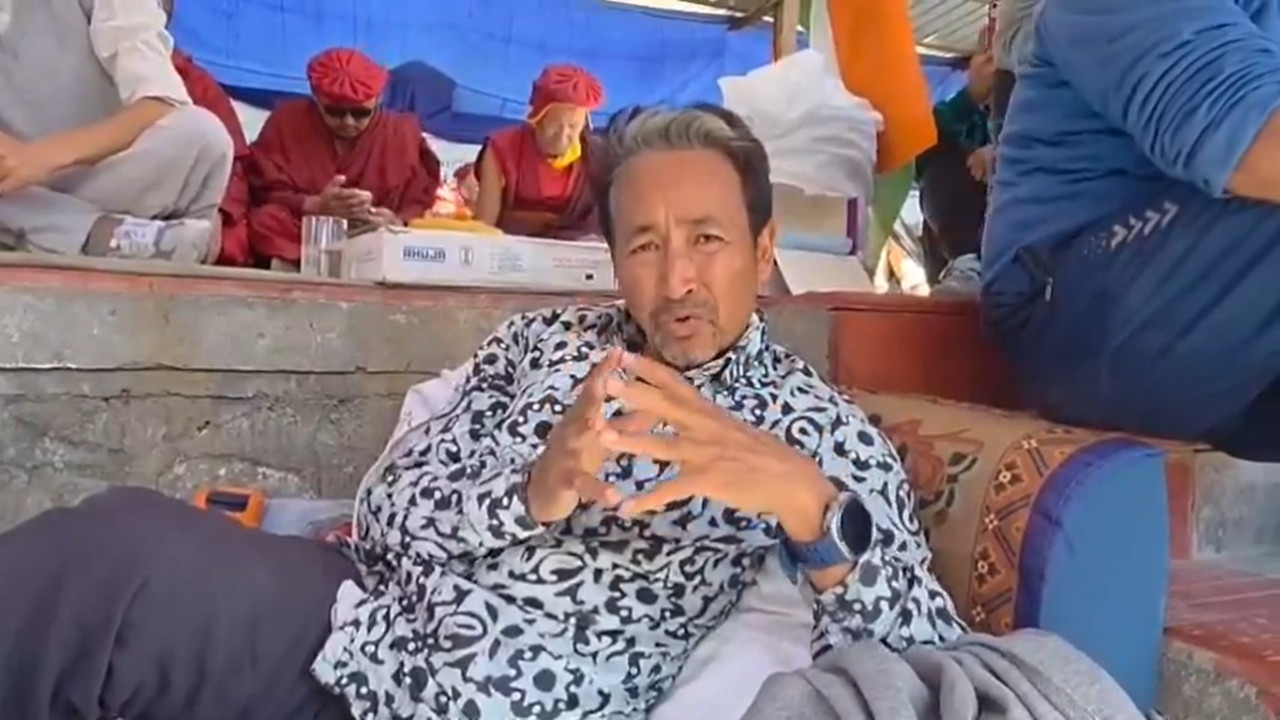
Sonam Wangchuk Accused of Foreign Links; Arrested After Leh Unrest (Image Source: Screen grab from X/@Wangchuk66)
National News: Ladakh’s top police officer, SD Singh Jamwal, said on Saturday that activist Sonam Wangchuk, who led a hunger strike for Ladakh’s statehood, may have links with Pakistan. Jamwal raised concerns about Wangchuk’s visits to other countries and possible connections with foreign intelligence agencies. Wangchuk was arrested under the National Security Act (NSA) on Friday and sent to Jodhpur Central Jail in Rajasthan. At a press briefing in Leh, the DGP said the police had also detained a Pakistan PIO (intelligence officer) who was reportedly in contact with Wangchuk. He added that Wangchuk had attended an event in Pakistan and visited Bangladesh, and investigations are ongoing.
The DGP accused Wangchuk of provoking violence in Leh on September 24, which resulted in four deaths and injuries to nearly 80 people. Protesters reportedly set fire to the local BJP office and some vehicles. Authorities claimed that Wangchuk’s “provocative statements” and actions by politically motivated groups fueled the unrest, as negotiations were ongoing between officials and Ladakhi representatives. The Ministry of Home Affairs said Wangchuk’s references to the Arab Spring and Nepal’s Gen Z protests had stirred the crowd, leading to the torching of the BJP office and government vehicles. Jamwal added, “Wangchuk has a history of instigating protests. He has mentioned events in the Arab Spring, Nepal, and Bangladesh. We are also investigating his funding for potential FCRA violations.” When asked about foreign involvement, Jamwal noted that two more people had been detained but did not confirm any larger plot. “This region has a history of Nepalese laborers, so further investigation is required,” he said. He also said the violence was driven by “so-called environmental activists.”
The DGP said Wangchuk’s actions disrupted talks with the central government. “The September 24 incident caused deaths and injuries among civilians, police, and paramilitary officers. Some environmental activists tried to hijack the dialogue platform, and Wangchuk played a key role,” he added. Wangchuk began his indefinite hunger strike on September 10, demanding constitutional protections, greater autonomy, statehood, and Sixth Schedule status for Ladakh. The government continued dialogue with regional bodies like the Leh Apex Body and Kargil Democratic Alliance through a High-Powered Committee and informal meetings. Following the unrest, the government revoked the Foreign Contribution (Regulation) Act license of SECMOL, the institute founded by Wangchuk, citing violations in connection with the protests. Meanwhile, the Communist Party of India (Marxist-Leninist) Liberation condemned Wangchuk’s arrest, calling it part of a government “witch-hunting” effort. The youth wing of the Leh Apex Body organized the agitation, which was part of the ongoing campaign for statehood. Wangchuk ended his 15-day fast on Tuesday, urging supporters to maintain peace and saying the “Gen Z’s frenzy” disrupted the process.





Copyright © 2026 Top Indian News
